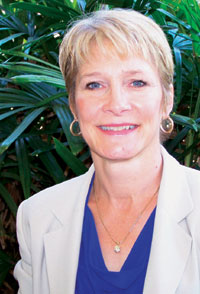Bias Toward Being Impartial: Dennis Grubbs
- Company: Causeway Lumber Co., Fort Lauderdale, Fla.
- Tenure with company: Nine years
- 2007 gross sales: $66 million
When you’re working in an environment where production building is evaporating as fast as rainwater on hot pavement, just keeping the business upright can be a full-time job. Dennis Grubbs, chief financial officer of Causeway Lumber Co. in Fort Lauderdale, Fla., knows the feeling.
South Florida’s housing market plunge rivals that of any area in the country, and Causeway has felt its effects. In 2006, Causeway posted sales of $110 million and had 340 employees among its four locations. In 2007, sales fell 60%, and Causeway was down to 145 employees.
The value of a CFO, especially in the current climate, lies in giving the company’s owner an opportunity to talk strategically–and frankly–with someone who is impartial, says Grubbs, “someone who is dealing with dollars, and what’s best for the business, and not getting caught up in the emotion of the thing and doing something because it’s been done that way for the past however-many years.”
As CFO, Grubbs oversees human resources, IT, purchasing, credit, and accounting, but says that most of his time the past year has been spent looking for cost reductions.
“You can’t do it all with people, so you start looking at fixed expenses,” he says. Grubbs began with insurance. “Our insurance is based on projections, so we went back to them and said, ‘Look, our projections were way too high,’ and in all cases, we got a reduction,” he says.
Aside from managing the downturn, over his nine years as CFO, Grubbs has seen the march of technology bring new responsibilities to his job.
“We were a little behind the times,” he says, but “now we don’t even drive to the bank anymore. Instead, payments made by check are scanned and sent to the bank electronically.”
Causeway is also using bar codes in some of its departments as a way to better track and manage inventory.
“Technology has made my job a lot more interesting, and in a good way,” says Grubbs. “Otherwise, things would be boring, and I’d go work for the government.”
–Kate Tyndall is a freelance writer who lives in Washington.

